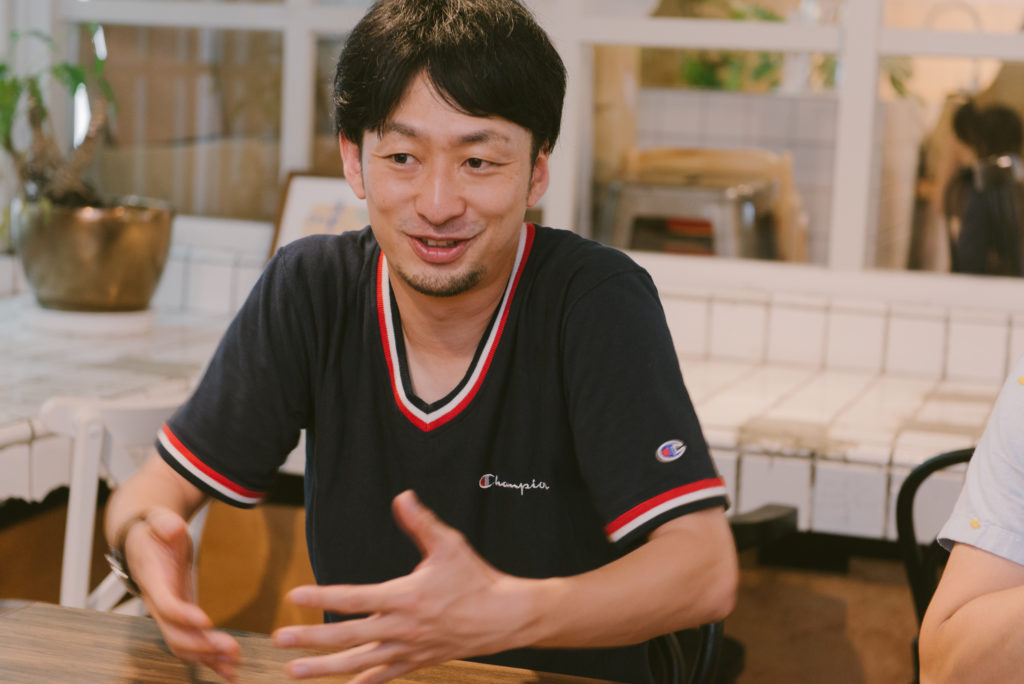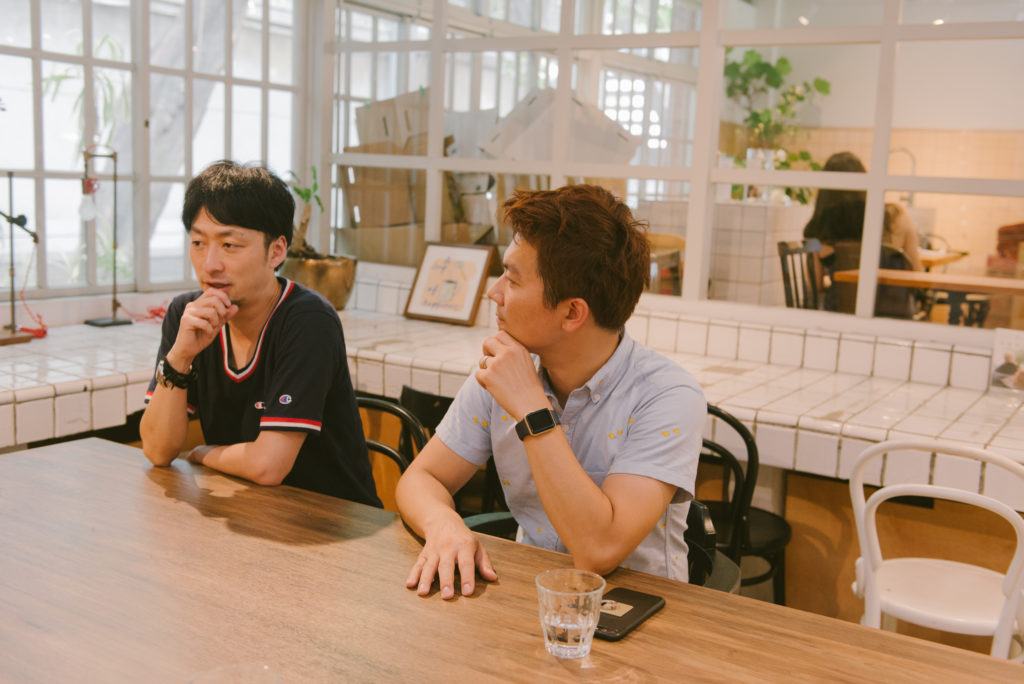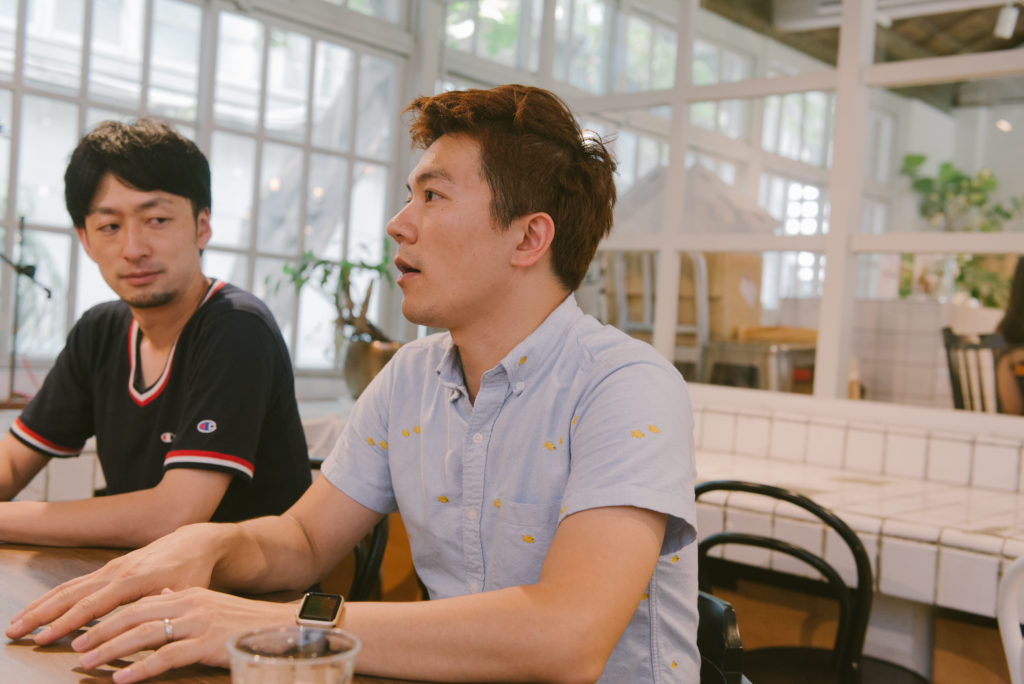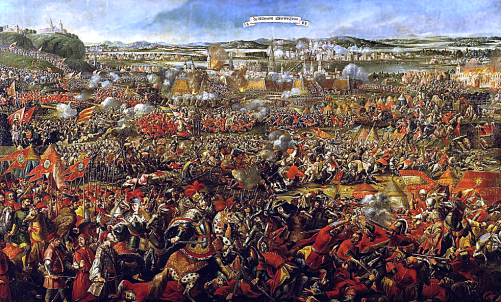Discover the charm of Taiwan's coffee culture: from rich and diverse flavors to various possibilities.
For professional baristas, please follow the coffee workshop (Wechat official account cafe_style)
If you want to move steadily into the future, you must first get to know yourself.
If you were asked to give your first impression of Taiwan's coffee culture, what would you think of? Will it be a personality cafe with ever-changing styles, or coffee in convenience stores all over the street, or will it be close to the Grand Slam world championship record?
The coffee multicultural exhibition Culture & Coffee Festival in Taipei, which made its debut this summer, attracted brands from Tokyo, Kyoto, Hokkaido and Kyushu. The ranking of Taiwan-Japanese coffee brands is a good opportunity to discover Taiwan's characteristics.
"in the context of time and space in the past, Taiwanese will inevitably feel longing for foreign things. Through this event, participants can come into contact with many famous Taiwan shops at once, not only drink their coffee, but also feel the style they want to present, and then they will find that each coffee shop has its own highlights. Japan's coffee culture is very good, but Taiwan is equally wonderful. "said Wu Zelin, winner of the 2016 World Barista Competition (World Barista Championship) and founder of Simple Kaffa.
So we asked Wu Zelin, who co-hosted Culture & Coffee Festival in Taipei, and Fujinshu's president in Tokyo, Xiao Lufu, to talk about their observations.

The charm of Taiwan Coffee Market
Wu Zelin believes that there are two charms of Taiwan's coffee market: diversity and the enthusiasm of coffee people. Because "Taiwan is one of the regions with the largest number and densest number of self-baked cafes in the world." Also because of being able to roast and brew according to their own ideas, the diversity of coffee flavor grows at a power rate. "Wu Zelin said.
What is the definition of home baking? Compared with large baking plants (which can be said to be absent in Taiwan at present), self-baking means that the store bakes by itself in order to grasp the freshness and preferred flavor. If you think about it, do you often see a bean dryer in a coffee shop? In other words, if there were 2000 self-baking cafes in Taiwan, there would be 2000 different styles of coffee, and the appearance would be naturally rich and varied.
"the enthusiasm of the coffee people is exciting. When it comes to coffee, you can see the light in the eyes of every coffee maker in Taiwan. "Wu Zelin said. In the Culture & Coffee Festival in Taipei event, Xiao Lufu also deeply felt that Taiwanese brands worked very hard when they came out of the stall, giving out all their belongings just to show the best. These warm-blooded coffee souls are the most precious assets in Taiwan's coffee market.

Two feelings of coffee culture in Taiwan and Japan
Taiwan focuses on a higher proportion of 'that cup of coffee', while Japan feels like 'enjoying a cup of coffee in life'. Wu Zelin believes that Taiwan's coffee culture is currently more technology-oriented, while Japan is culturally oriented. But at the same time, he also observed that coffee people in Taiwan have slowly begun to focus on the aesthetics of coffee life, which may also be the result of exchanges between different countries in recent years.
Xiao Luke, who has a cup of coffee every day, also mentioned that the Japanese operate the coffee shop as a brand, not only focusing on brewing a cup of coffee, but based on the overall feeling of the guests entering the store. pay attention to indoor environment, furniture, music, packaging and other details; waiters do not represent individuals, but the whole brand, which may also be related to the high degree of socialization of the Japanese.

As for techniques such as baking and brewing, Wu Zelin does not think that there is a saying that countries learn from each other, "because precisely speaking, each coffee shop is a small independent universe with its own coffee style." Only in this way can coffee shops learn from each other. "he said.
Finally, talking about the habit of drinking coffee, Wu Zelin found that many coffee shops in Japan are like small shops in the community, playing a soothing role locally, and nearby residents will buy a cup of coffee or coffee beans in their spare time, which has been integrated into their daily life. Similarly, compared with Japan, Taiwanese seem to be more accustomed to going out to drink coffee rather than buying beans to go home and brew them, indicating that there is still room for improvement in Taiwan's coffee bean market.
Listen to Wu Zelin talk about the Future of Taiwan Coffee
The market capitalization of Taiwan's coffee market is as high as NT $70 billion a year. Independent coffee shops, international chain brands, local low-price coffee chains, and convenience stores contend with a hundred schools of thought. Both operators and consumers must be very curious about the future trend of Taiwan coffee.
On the topic of the future of Taiwan coffee, we further visited Wu Zelin and asked him to talk about his views on various aspects of local coffee beans, roasting, brewing and management.
Q: compared with Australia, Japan, Nordic and other countries, Taiwan's own roasting cafes are very well developed. does this situation lead to or limit the future development of coffee in Taiwan?
The pros and cons are mixed! The disadvantage of a large number of own bakeries is that a person or a store's mental energy is limited after all, every link is not easy to deal with, of course, there will be fewer stores that can handle well. In addition, it is relatively difficult to make a profit, and the initial investment in roasting coffee beans is considerable, so how to recover the cost is an important issue. When so many coffee shops choose to bake themselves, only a few can develop into "micro" roasting plants, and few or even none of them want to become large bakeries.
But the advantage is that the more links you can control and the ability to control them well, you have a good chance of developing the best coffee style. The so-called coffee style, if you only talk about coffee itself, must be set before you start everything, that is, what kind of coffee you want to present. Then, back to the upper reaches of the coffee production chain to choose what kind of raw beans to buy, through what kind of baking method, and then with what kind of brewing setting, in order to get the imaginary cup of coffee. This is a state where the division of labor is relatively difficult to achieve, because even if each link is seen separately, it is not necessarily perfect, and it is not easy to integrate well.
Q: since it comes to coffee style, how can you master theories and trends while not blindly following and groping for your own style? For example, your famous syrup style, transparent style and so on?
I should be the world champion who runs coffee shop most frequently. I am used to drinking a lot of coffee from different stores to expand my imagination of coffee. After I won the best result in Taiwan in 2014, I had a deep feeling that I was able to brew the coffee I wanted to the extreme, but I found that the coffee made by other players on the world stage was completely different from mine. So after returning to Taiwan, I took the time to drink the coffee from other countries. At that time, I was shocked. The other side's coffee was also delicious, but it was completely different from what I made. Since then, I have actively developed several different styles of coffee, each with different choices of raw beans, roasting techniques and brewing techniques. The most difficult thing about these coffee styles is the style setting at the beginning. Although it is not easy to complete the imaginary style, the most difficult thing is that you never thought that coffee could be like that. Once the coffee style can be determined, then the follow-up special technique is just homeopathy.

Q: Taiwan has gone from the era of Mamba and Blue Mountains to now paying more attention to different coffee producing areas, from "drinking" coffee to "tasting" coffee, and even paying more attention to overall experiences such as space and consumer interaction. What do you think will be the progress of Taiwan's coffee market in the future under the global trend? How to get out of your own way?
I think in the next few years, Taiwan will eventually have the opportunity to have several independent coffee shops that can stand out from many competitors and grow into medium-sized coffee brands, because people pay more attention to things other than coffee. I also noticed the importance of establishing a business model. As far as Simple Kaffa is concerned, we hope to enter the market of ordinary consumers, because the existing phenomenon of boutique coffee, whether it is the so-called third wave or the fourth wave with different opinions, is inevitably characterized by "arrogance" and attracts consumers who have a basic craze for coffee. However, to bring Simple Kaffa coffee to the mass market does not mean to reduce the quality, on the contrary, it is to work harder to improve the quality. I think when a coffee style goes to the extreme, it can be addictive without explanation. Many times, when we think that ordinary consumers don't drink boutique coffee because they can't taste coffee, but the truth is that we are not good enough, we must remind ourselves of this from time to time.
Q: it has been reported that you plan to develop inexpensive sub-brands in the future. will this be one of the future trends of boutique coffee?
I believe this is definitely one of the trends, but the original report was shortly after I won the barista world championship. after a lot of discussion, thinking and sedimentation, I now have a different idea, but let me make a point. Please continue to pay attention to our growth.
Q: it has been reported that you should no longer participate in the World Cup baristas contest, but instead intend to challenge the field of coffee blending. You also won the third place in the World Cup Coffee blending Competition last year. Can you talk about the trend of combining coffee with other drinks? And the overall trend of the beverage market?
When I was preparing for the World Coffee Bartender Competition, I discussed and studied with several of Taiwan's top bartenders. What was interesting at that time was that everyone felt a little tired about their field, and they all wanted to learn something new to stimulate themselves. And the areas closest to coffee are tea and wine. So we can see that coffee itself is beginning to show more forms, such as beer coffee, coffee blending, and nitrogen coffee, which is very popular in recent years, are good examples. Now, coffee is gradually combined with meals, and I have recently been imagining how coffee should be paired with desserts and meals to produce an one-plus-one effect. Finally, with regard to the overall trend of the beverage market, I think many exquisite and high-quality things will set off a whirlwind and bring some changes to the existing mass market. In the field of coffee, like capsule coffee, I think it is a project that has a good chance of change.
Q: Taiwan coffee professionals have performed well in roasting, cup testing, baristas and other world competitions. what do you think is the potential of Taiwan coffee beans? How to be seen?
The quality of Taiwan coffee beans is much better than it was a few years ago. Not long ago, Simple Kaffa and I supported the evaluation of Taiwan's Zhongdu Coffee. I drank several amazing coffees at the scene. As Taiwan's coffee beans are limited to the lower altitude, they have some inherent disadvantages, but through the improvement of the treatment method, people still feel that there is still room for growth in the future. In the past, Taiwan coffee could not be widely seen in the world coffee map. I think the reason is that the production cost of Taiwan coffee beans is very high, so most farmers in Taiwan choose to bake by themselves and then sell coffee and cooked beans in their own farms or coffee shops. because only in this way can we make a profit efficiently. However, in general, only a few coffee shops have to bake and brew by themselves, and there are already a few who can do very well, not to mention that farmers have to grow coffee in addition to baking and brewing. You can imagine the difficulty. When Taiwan coffee cannot be presented in the consumer market with the highest quality, it is difficult to be really seen because of its quality. I sincerely suggest that farmers can plan a small part of the output, provide it to the coffee shop they appreciate, bake and sell it, expose it through better presentation, and then generate a positive cycle through such quality marketing, which should bear fruit in a few years.
Through the sharing of the two people, we have a clearer understanding of our own coffee culture and a clearer view of the future trend. It is believed that the aesthetics of coffee life, coffee with meals, mixed drinks, and the popularity of boutique coffee will not only occur in Taiwan, but are vaguely brewing all over the world.
After clarifying the advantages and disadvantages of self-baking, if we can develop ways to deal with it, I believe that Taiwan's rich and diverse coffee style will continue to shine in the world, and the development of the internal market will become more mature.
Important Notice :
前街咖啡 FrontStreet Coffee has moved to new addredd:
FrontStreet Coffee Address: 315,Donghua East Road,GuangZhou
Tel:020 38364473
- Prev

Which is better, espresso or espresso?
The difference between Italian espresso Espresso and espresso Ristretto [Ristretto] this is more espresso than espresso. If an espresso takes about 26 seconds to flow out of the machine, and ristretto is the first 13 seconds of espresso, about 20ml, which is thicker than the average espresso. Italian espresso (Ristretto). Italy
- Next

Tea or coffee? Look at the changes in the history of British drinks, the struggle for supremacy of tea coffee!
Professional baristas Please pay attention to the Coffee Workshop (official Wechat account cafe_style) over the years, Britain's national image has been inseparable from tea. When most people think of England, they think of afternoon tea. However, this impression may be out of date, because after the new millennium, more and more British people have actually given up their quintessence tea.
Related
- How did the Salvadoran coffee industry develop in Central America?
- What exactly does the golden cup extraction of coffee mean?
- The Origin of Coffee flower
- [2023 Starbucks World Earth Day] there are more meaningful things besides free Starbucks coffee!
- What kind of coffee is there in Spain? 9 Flavors of Spanish Coffee
- Aromatic African coffee| Kenya's coffee culture and historical production area
- Liberica Coffee Bean knowledge: the characteristics of Liberian Coffee beans of the three original species of Coffee beans
- The origin and formula of Spanish latte introduces the taste characteristics of Bombon coffee in Valencia, Spain.
- How to adjust the solution of over-extracted coffee
- What is the tasting period of coffee beans? What is the period of coffee and beans? How should coffee wake up and raise beans?

